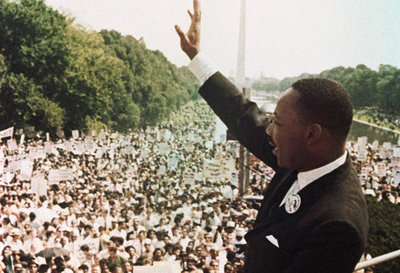 (Photo Credit: Bettman/Corbis)
(Photo Credit: Bettman/Corbis) This coming Wednesday, August 28, will be the fiftieth anniversary of what is possibly the greatest speech ever delivered by an American orator not named Abraham Lincoln. It was on that date in 1963 that the Rev. Dr. Martin Luther King, Jr. stood in front of the Lincoln Memorial in Washington, D.C. at the March on Washington for Jobs and Freedom.
President John F. Kennedy was working at the time to advance civil rights legislation. Kennedy hoped that King would give a speech that would make a moral case for civil rights, but without the calls for violence or civil disobedience that had alienated some white voters and members of Congress.
Historians of the period now say that in the days leading up to the march, Kennedy was nervous that many people would be deterred from attending. Police up and down the east coast harassed Black men and women traveling to Washington for the event. If the march drew a disappointingly small crowd, or if it devolved into violence, Kennedy worried that it would derail his efforts to pass civil rights and voting rights legislation in Congress.
But, when the day of the March came, the crowd was anything but disappointing. More than 250,000 people, about three quarters of them Black, spread across the National Mall in the heart of Washington. People who were there said they were awed by the immense size of the peaceful gathering.
King was the sixteenth of the eighteen speakers at the rally. The tone of the speech, as Dr. King began it, was calm and stately. He made reference to the Emancipation Proclamation in its centennial year. King stated that the proclamation amounted to a one-hundred-year-old pledge to Black America that had not been fulfilled. “The Negro,” he said, “is still not free.”
King spoke of the Declaration of Independence as a promissory note that had been bequeathed to every American with an assurances of “life, liberty and the pursuit of happiness.” Only, he said, the promise to Black America had been defaulted upon. The note, when brought before the halls of justice for redemption by Black Americans, had been returned unpaid and marked with the label “insufficient funds.” King wondered if this was possible. Could it be that the wealthiest and freest nation on earth did not have the resources to make good on its promise of liberty to all its citizens?
King then declared that the purpose of the march was “to remind America of the fierce urgency of Now.” The time had come, he said, to bring justice to America and an end racial discrimination.
As King appeared to close his address, he warned members of his audience against the temptation to use violence in pursuing their cause. He said that the movement would work cooperatively with white allies and would not falter in its resolve until all objectives had been realized — an end to police brutality, an end to legal discrimination, an end to forced segregation, and an end to abuses against the voting rights of Black Americans.
And he thanked people for their sacrifice. He said, “I am not unmindful that that some of you have come here out of great trials and tribulations. Some of you have come fresh from narrow jail cells. And some of you have come from areas where your quest [has] left you battered by the storms of persecution and staggered by the winds of police brutality.” Fifty years after the speech, we may be tempted to think that the struggle for civil rights and equality under the law was won with lofty rhetoric and compelling arguments. No. It was won by people who were willing to put their live on the line and to suffer for the rights that were rightfully theirs. We should never forget that. It is the only way to win real change.
Up to that point, King had delivered a solid, confident and decorous speech. He had given his audience an articulate exposition of the cause for which they rallied and strengthened their resolve to march on. He also made clear to those who were wary of the civil rights movement that its leaders would be bound by the bonds of civility. However, just at the point where it seemed that King was winding up his stately remarks, the speech took on a different tone.
Some say that it was at this point that the gospel singer Mahalia Jackson yelled out, “Tell them about the dream, Martin!” Whether King heard those words or not, he departed from the prepared remarks he had written and slowly shifted into the style of a preacher on the pulpit. He said, “And so even though we face the difficulties of today and tomorrow, I still have a dream. It is a dream deeply rooted in the American dream.”
When I hear those words now, fifty years after King spoke them, I feel the goosebumps down my neck. King spent the last five minutes of his speech painting a picture of America, not as it was, but as it should have been — and as it still should be. He talked about a day when “the sons of former slaves and the sons of former slave owners will be able to sit down together at the table of brotherhood.” He talked about his vision that “my four little children will one day live in a nation where they will not be judged by the color of their skin but by the content of their character.”
The crowd began to sway and cry out in response to King’s words. And when he quoted the song, “My country ‘tis of thee, sweet land of liberty, of thee I sing,” the National Mall was turned into a giant revival meeting.
King said, “From every mountain side, let freedom ring… And so let freedom ring from the prodigious hilltops of New Hampshire. Let freedom ring from the mighty mountains of New York. Let freedom ring from the heights of the Alleghenies of Pennsylvania. Let freedom ring from the snow-capped Rockies of Colorado. Let freedom ring from the curvaceous slopes of California. But not only that. Let freedom ring from Stone Mountain of Georgia. Let freedom ring from Lookout Mountain of Tennessee. Let freedom ring from every hill and molehill of Mississippi. From every mountainside, let freedom ring!”
It is in this moment of the speech, I think, that we are most able to remember King as a prophet. It is not a title that I use lightly. In the Hebrew Bible, a prophet is a person who speaks the will of God to a people who need to hear it. That is what King was that day, and on many other days, too.
Have you ever noticed that in most of his speeches and writing, the Baptist minister, Martin Luther King, rarely quoted the Christian Scriptures? His favorite biblical texts were the prophets. In the “Dream” speech, he quotes the Hebrew prophets Jeremiah, Amos, Isaiah, and the Hebrew book of Psalms. Even in the parts of the speech that King extemporized without written notes, he quoted them with near perfection. In contrast, in the entire speech, there is not a single direct quote from the New Testament.
That may have been, in part, an influence from King’s close friendship with Rabbi Abraham Joshua Heschel. Heschel’s book, The Prophets, published the previous year, is considered one of the masterpieces of 20th century Jewish scholarship and it was one of King’s favorite books. Heschel would later march alongside of King in Selma, Alabama, and he considered that to be one of the great religious experiences of his life. From the depth of his understanding of the Jewish prophetic tradition, Heschel wrote that in the gross inequality of American society, “Few are guilty, but all are responsible.” In Heschel, King heard a powerful voice that called on all Americans, Black and white, Jews and gentiles, to identify the call for civil rights with the call of the Bible’s prophets for justice.
Now, in English, when we hear the words “prophet” and “prophecy,” we often think of a person who can predict the future. But that is not the Bible’s understanding of what a prophet is. Much more than a person who can see the future, the biblical prophets were men who could see the present — people whose vision penetrated the lies and half-truths that a society tells itself to hide its inequities. King, like those prophets of old, could see the truth of his day and name it for his contemporaries in a way that would stir people to self-reflection, re-evaluation, and action to create a better reality. That is what a prophet does.
You certainly could not say that King’s words have predicted the future — not if you imagine that the world we are living in right now is that future. One hundred fifty years after the Emancipation Proclamation, fifty years after “I Have a Dream,” the promise is still unfulfilled. The promissory note still has not been redeemed. Even though we have an African-American president, and even though the legal discrimination and forced segregation of those days are no more, we still live in a country in which Black and Hispanic people are about twice as likely to live in poverty as are white people. We live in a country in which the gap in wealth that separates white and Black Americans actually has grown wider over the last thirty years.
We live in a country in which an increasing number of states have passed voting laws that make it less likely that non-white citizens will vote. We live in a country in which the Supreme Court recently struck down key provisions of the Voting Rights Act, the very law that Martin Luther King and John F. Kennedy worked so hard to pass, and which was, I might add, drafted in the conference room of our own Reform Movement's Religious Action Center. We still live in a country in which young Black and Hispanic men must learn to live with the fact that they will be judged with suspicion just for walking into a store, driving down a street, or walking peacefully in a white neighborhood. Especially in Florida, we know what can happen as a result of that suspicion and distrust.
It should not be so. This week’s Torah portion (Ki Tavo) once again reminds us that our ancestors were persecuted and oppressed (Deuteronomy 26:5-6), and that it is our duty, therefore, to identify with the plight of the vulnerable and the stranger, to freely offer them a portion of our riches (ibid, v. 12), and not to hate or to mistreat them.
It has been a long time since Martin Luther King, Jr. spoke to us, but we are not finished listening to him. The fierce urgency of Now should still be upon us. Fifty years ago this week, King concluded his greatest speech — America’s greatest speech of the past century — by hoping for the day when “all of God's children, black men and white men, Jews and Gentiles, Protestants and Catholics, will be able to join hands and sing in the words of the old Negro spiritual: ‘Free at last! Free at last! Thank God Almighty, we are free at last!’”
Until that day comes, we will not be free. Until that day comes, we as Jews still have much work to do. Shabbat shalom.
Other Posts on This Topic:
Catastrophe
The Torah and the Constitution

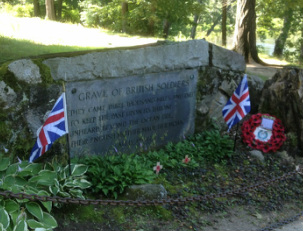
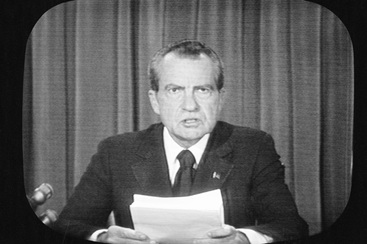
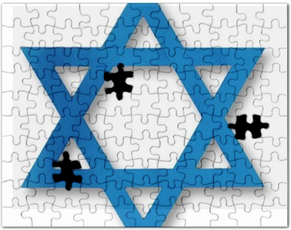
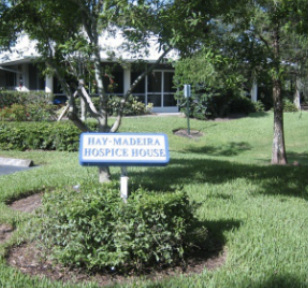
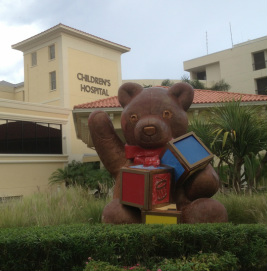
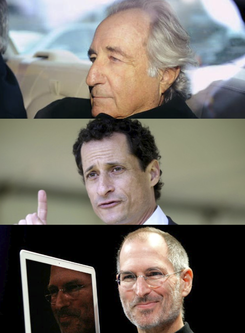
 RSS Feed
RSS Feed
